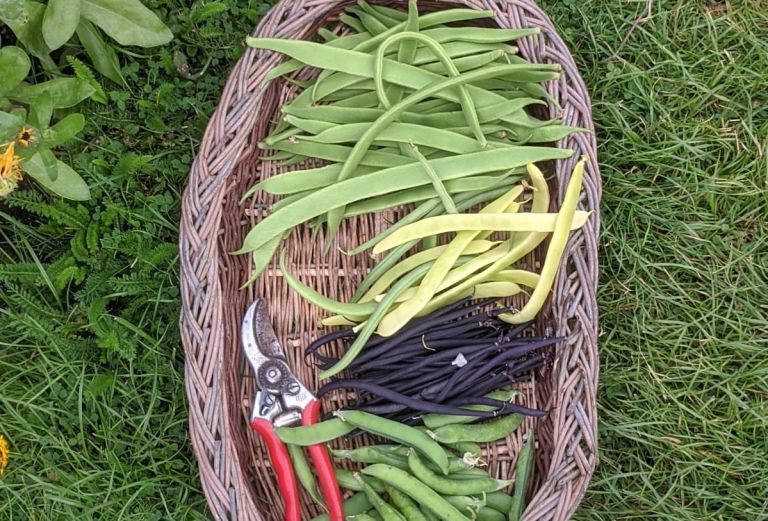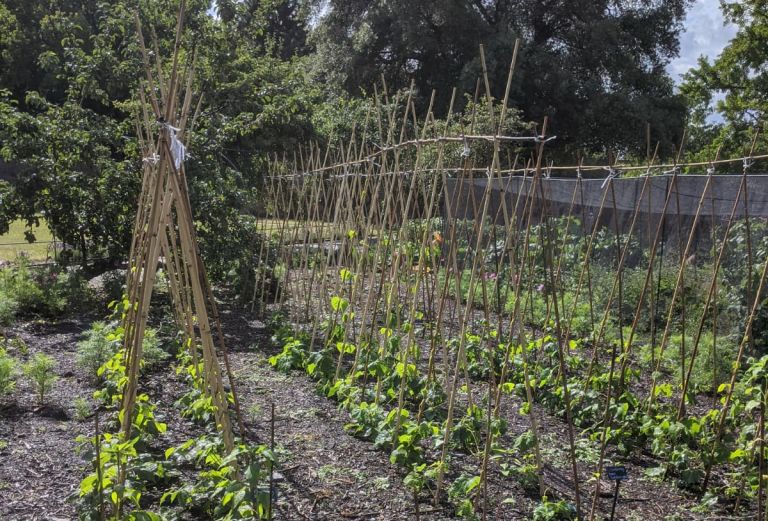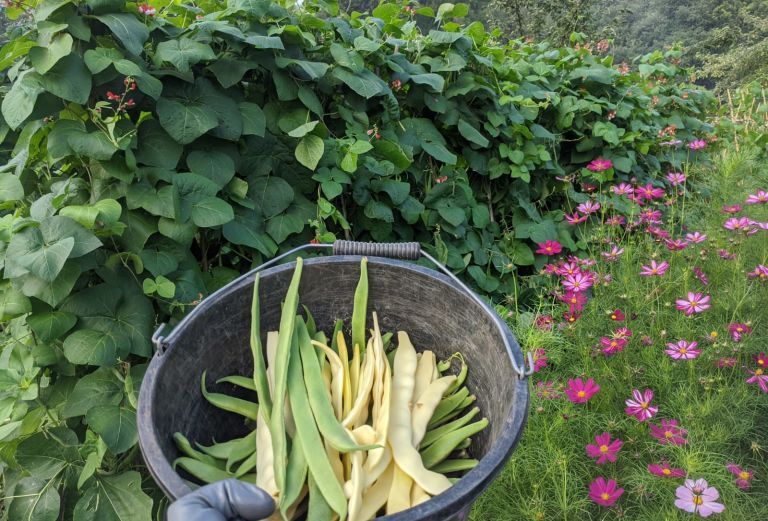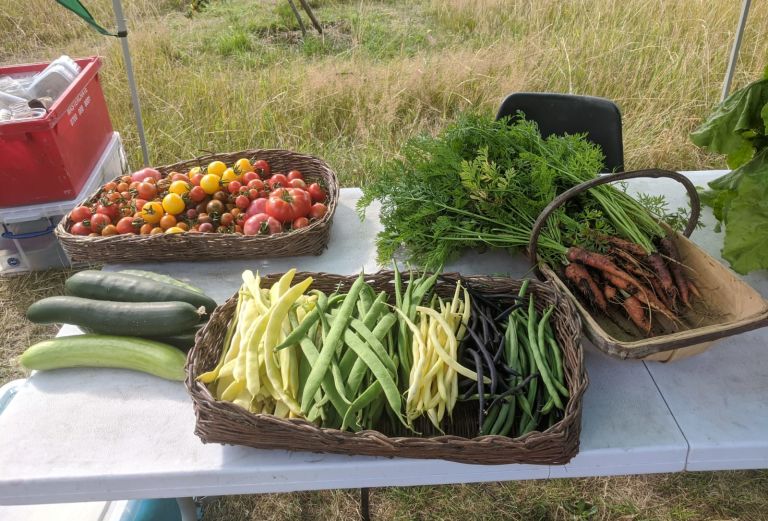
Phaseolus vulgaris
We all know the rhyme about beans (legumes) being good for your heart, and this is true. Many different studies have concluded that eating beans regularly can reduce cholesterol and help prevent heart disease, due to their high soluble fibre content. When it comes to what legumes do to the soil, things become far more interesting – and potentially more complicated – than you might imagine.

Beans are extremely clever: they actively attract and encase specific bacteria in nodules which the plant grows for them. These bacteria then become completely dependent on the plant for energy. In return, these amazing bacteria break down organic compounds into available nitrogen for the plant to absorb. This symbiotic relationship is extremely advantageous for the plant as it can then grow vigorously, producing even more leaves that will photosynthesise, in turn producing more sugars that can then be put into making delicious beans, as well as sharing sugars with the bacteria to create more available nitrogen.

It doesn’t stop there: as horticulturists, we harness this process to restore nitrogen in the soil. The nitrogen which the bacteria produces in the nodules remain fixed in the soil. This means growing beans after root veg in our crop rotation will provide nitrogen for the following season’s crop of leafy salad or brassicas (cabbage, kale, cauliflower, broccoli).
Why is this 6000-year-old farming technique so important now? Biologically fixing nitrogen in the soil is sustainable, clean and provides us with produce. At Fulham Palace we choose not to add alternative synthetic fertilisers as these are reported to be harmful to aquatic life and increase global greenhouse gases. By crop rotating in the vegetable garden, other crops can benefit from the biological nitrogen fixing. We also use other organic fertilisers such as 6 x chicken manure, liquid seaweed and our own garden mulch.
Matt Weston, garden apprentice
